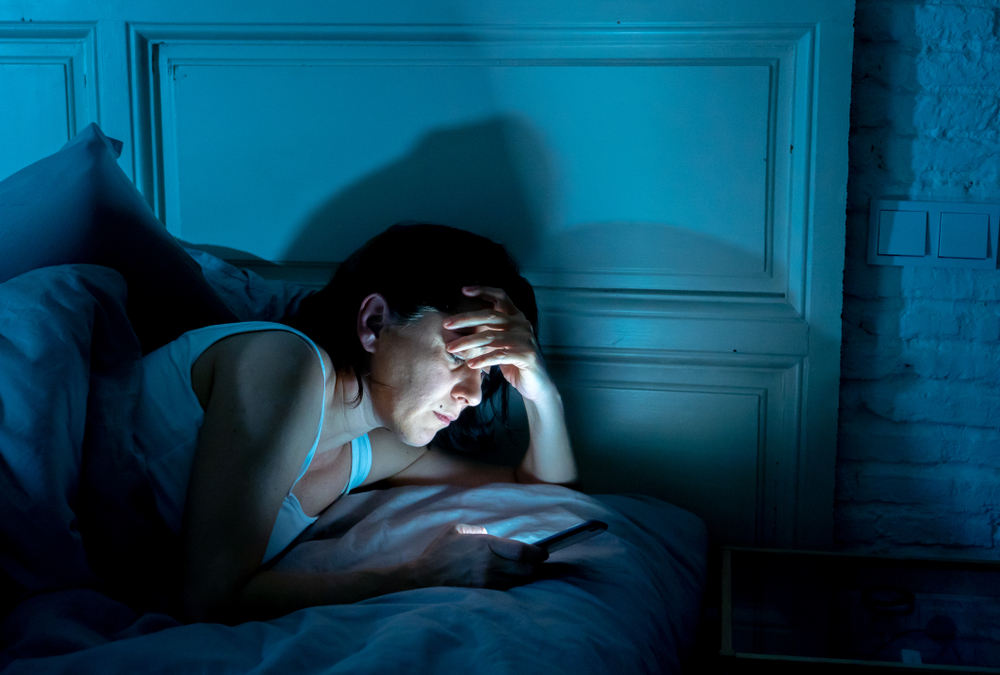How Insomnia May Be Affecting Your Mental Health
Are you finding yourself tossing and turning, and having trouble sleeping through the night? If a psychological cause is not to blame, it may be related to your mental health.
According to a recent large-scale study conducted by the Centre for Addiction and Mental Health, people who have been diagnosed with mental health disorders such as anxiety or depression are more likely to suffer from poor sleeping patterns compared to the general population.
In a seemingly continuous loop, poor sleep contributes to poor mental health, and poor mental health contributes to poor sleep. As the two are so closely connected, treatments which aid in better sleep can result in improved mental health, and treatments to improve mental health issues can contribute to better sleep.
During the sleep cycle, brain activity increases and decreases during different stages. In NREM, or non-rapid eye movement sleep, overall brain activity slows down, with some quick bursts of energy. In REM, or rapid eye movement sleep, the stage most closely associated with dreaming, brain activity increases rapidly. Both NREM and REM stages are important, as the increasing and decreasing of brain activity aids in thinking, learning and memory, and impacts emotional and mental health.
Getting enough sleep, particularly REM sleep, allows the brain to process emotional information. While a person is asleep, the brain works to evaluate and remember thoughts and memories. A lack of sleep can harm the retention and development of positive emotional content. This lack of positive content can influence mood and emotions, and is linked to mental health disorders and their severity, including the risk of suicidal thoughts or behaviours. Although some people believe that alcohol can aid in getting a restful sleep, in reality, alcohol prevents the body from entering REM sleep, and is also related to waking up multiple times throughout the night.
Sleep and depression
While it is estimated that 300 million people worldwide suffer from depression, about 75% of these people also suffer from insomnia. Growing evidence suggests that poor sleep or insomnia may induce or exacerbate depression, which may even be heightened for those suffering from Seasonal Affective Disorder. However, with sleep and depression so closely linked, a focus on improving sleep may prove to be a relief for some of the effects of depression. Alternately, a significant increase in fatigue and sleeping that seem out of the ordinary may also be signs of depression.
Sleep and Anxiety
Those suffering from anxiety may find themselves having trouble falling asleep due to worries and a restless mind, and this hyperarousal is a direct contributor to insomnia. In some cases, sleep problems can become a source of worry, making it even more difficult to drift off. With sleep and anxiety being so closely related in a bi-directional relationship, a lack of sleep may actually trigger the development of anxiety in those who are at high risk.
How to get a better sleep
Most people can stand to improve something about their daily sleep routine, which could positively impact their quality of sleep. Some basic healthy sleep habits that a mental health and/or addiction treatment can help to implement are:
- Have a set bedtime and maintain a regular sleep schedule
- Wind down with relaxation techniques such as breathing exercises, stretches, or reading
- Avoid the use of alcohol, tobacco, and caffeine
- Avoid bright light, especially blue light from screens, at least one hour before bedtime
- Exercise during the day, which can be as simple as going for a walk in your neighbourhood
- Block out excess light and sound that could disrupt sleep
What to do if you are experiencing chronic trouble sleeping
Sometimes we need professional help with our sleep hygiene and routine. As mental health disorders can disrupt sleep, poor sleep can also disrupt mental health. While this may sound like a negative feedback loop, focusing on methods to improve sleep may work as a preventative measure to aid in mental health. Speaking with a trained medical professional, such as a doctor or psychiatrist, is the first step to getting your sleep and mental health on track. A number of treatments may be recommended, from prescription medications to sleep apnea machines to cognitive behavioural therapy.
Our team of doctors, including a psychiatrist on staff, nurses, and counsellors are trained to help those struggling with their mental health. If the topics covered in this blog sound familiar and you need help getting your mental health and sleep patterns under control, we can help. Call us today at 587-350-6818.
If you or someone you know are having thoughts of self harm or suicide, call 9-1-1 immediately.



